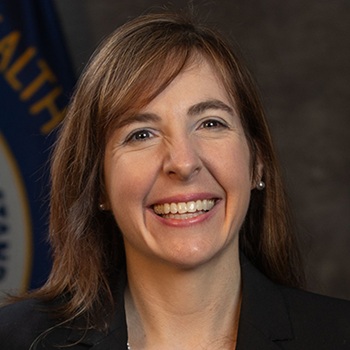
FRANKFORT, KY (July 1, 2025) – Kentucky Auditor Allison Ball released a special examination of the Kentucky Department of Education (KDE), identifying widespread improvements needed across the agency.
“Kentucky's children deserve to receive the education they need to be competitive in the real world," Auditor Allison Ball said. “This examination provides a clear path forward for student success, parent accessibility, and teacher support in all of Kentucky's schools. It can serve as a guiding document for Commissioner Fletcher as he continues his work to improve the state of public education across our Commonwealth."
House Bill 825 (2024) required an audit of KDE to review the consistent underperformance of the body governing Kentucky's public education. The APA worked side-by-side with PCG Consulting Group, one of the nation's most preeminent education auditing entities, to conduct an extensive examination of KDE's activities from July 1, 2020, through June 30, 2024.
Notable Findings and Observations Include:
- KDE erroneously allowed over $250 million in SEEK funds to lapse instead of reallocating the funds to cover alleged funding shortfalls, including the most recently complained of shortfall this past January. (Finding 2.1)
- KDE's Diversity, Equity, and Inclusion efforts have been a waste of money, and there has been no noticeable difference in student outcomes. (Finding 9.1),,,KDE's preschool funding mechanism violates the U.S. Constitution as recently reaffirmed by the United States Supreme Court. (Finding 12.1)
- KDE's method of rating preschools is misleading for parents. A high preschool rating from the state does not correlate to kindergarten readiness. KDE's current preschool oversight processes do not promote strong kindergarten readiness. (Findings 12.2 and 12.4)
- Governor Beshear's state-level education executives lack a unified vision for student success in K-12 education, postsecondary education, and careers. (Observation 3.4)
- KDE permits the three-cueing model for reading instruction, despite that model being banned in other states because it hinders reading proficiency. (Observation 5.10)
- KDE and KHSAA are not mitigating the risk of sexual harassment and abuse of student-athletes. (Findings and Observations 16.1 through 16.3)
- KDE, only upon this audit, created resources related to sexual assault prevention and raising awareness in schools. (Observation 8.8),,,Students with disabilities have not demonstrated meaningful academic outcomes over time due to KDE's ineffective special education tracking. (Finding 10.1),,,KDE neglects to provide meaningful support of the Kentucky School for the Blind and the Kentucky School for the Deaf. (Findings and Observations 11.1 through 11.4)
- KDE's curriculum resources for teachers are difficult to access and use, making it harder for teachers to do their job. (Findings 1.6, 5.1, 5.3 and Observation 6.5)
Importantly, several Findings and Observations also address the lack of measurable benchmarks or oversight by KDE. Some of these include:
- KDE's plan for improving education lacks measurable benchmarks for gauging student success. (Observation 3.1)
- The Kentucky Board of Education lacks measurable benchmarks for student success and is failing to critically oversee KDE. (Findings 4.2 and 4.8, Observations 4.3 through 4.7)
- KDE fails to track implementation of its model curriculum framework and accordingly cannot determine the effect of that framework on teaching quality and student outcomes. (Finding 5.2)
- Kentucky does not meet student-to-counselor ratios recommended in KRS 158.4416. (Finding 8.4)
- KDE is not ensuring that Individualized Learning Plans are helping students prepare for careers and college. (Observation 8.5),,,KDE lacks a dedicated staff and a comprehensive plan to support school districts in educating English Learners (EL), despite a growing EL population across Kentucky. (Findings 5.12, 5.13)
- KDE lacks a comprehensive strategy that shapes its approach to school improvement. (Finding 6.4)
- KDE has only completed comprehensive, onsite assessments of about half of all districts in the last 10 years. (Finding 7.1)
- KDE fails to monitor school districts in a way that leads to effective district improvement. (Findings and Observations 7.2 through 7.10),,,KDE's 2024-2029 strategic plan does not specifically mention Career and Technical Education or postsecondary and career readiness. (Observation 13.3)
- Area Technology Centers need to be given more autonomy and flexibility for the sake of their students, teachers, and staff. (Findings and Observations 14.1 through 14.11)
The complete examination, including accompanying recommendations and KDE's response, can be found on our website.
###










